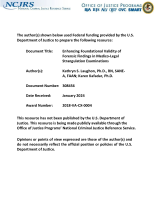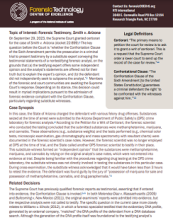The Over-citation of Daubert in Forensic Anthropology
Journal
Journal of Forensic Sciences
Date Published
2024
Agencies
NIJ-Sponsored
Publication Type
Research (Applied/Empirical)







